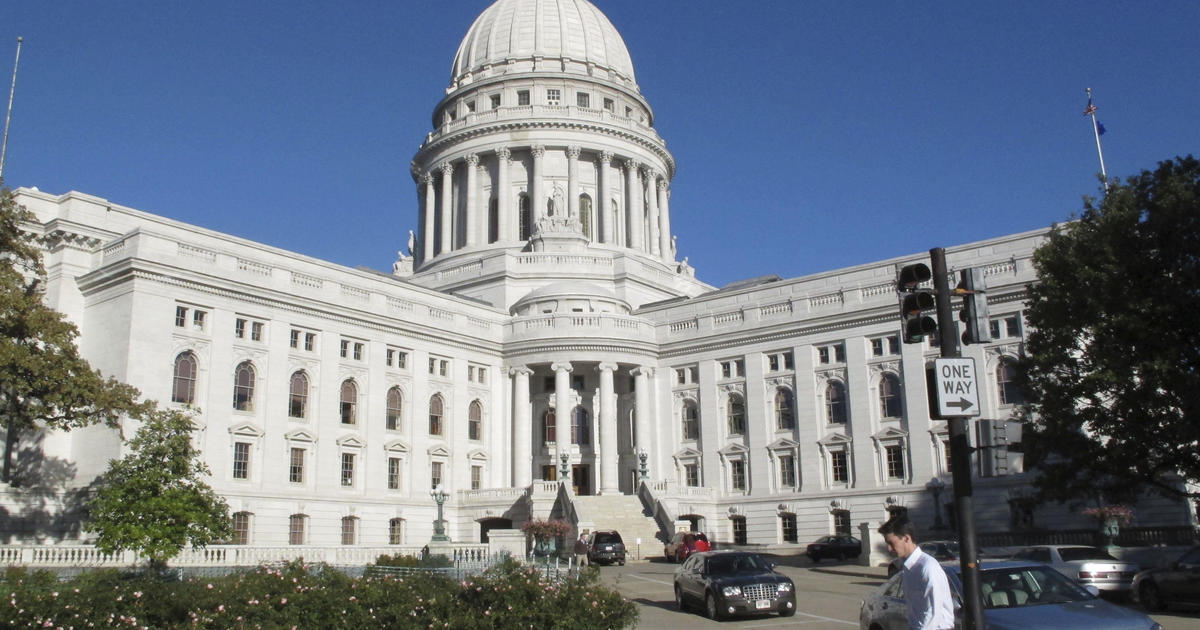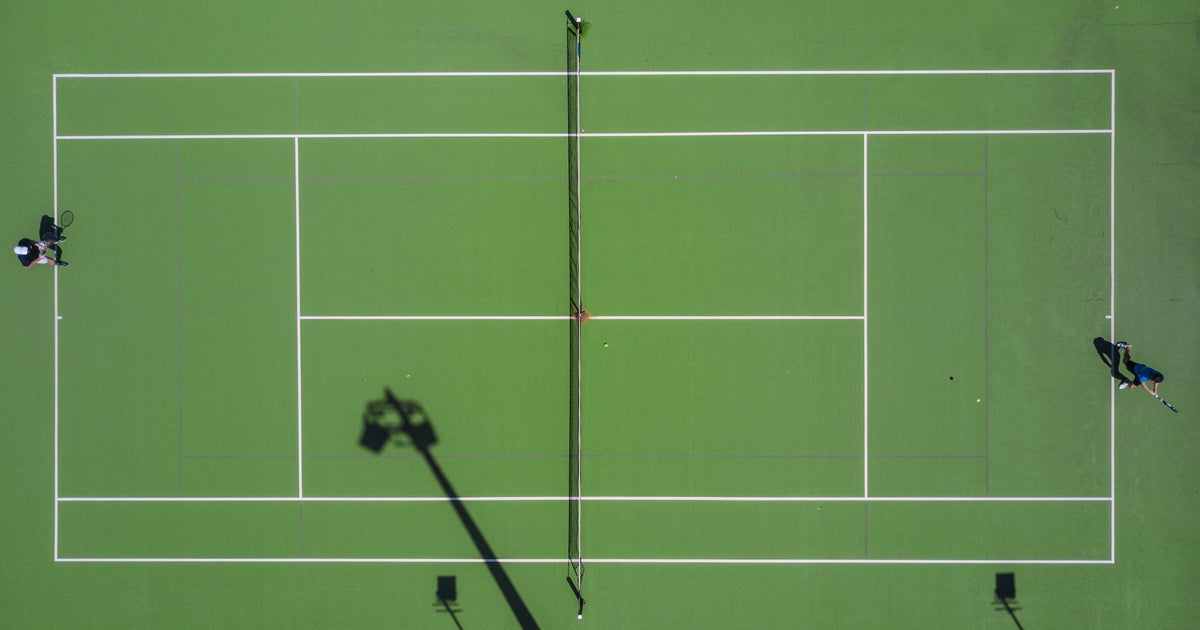World
China supported sanctions on North Korea’s nuclear program. It’s also behind their failure
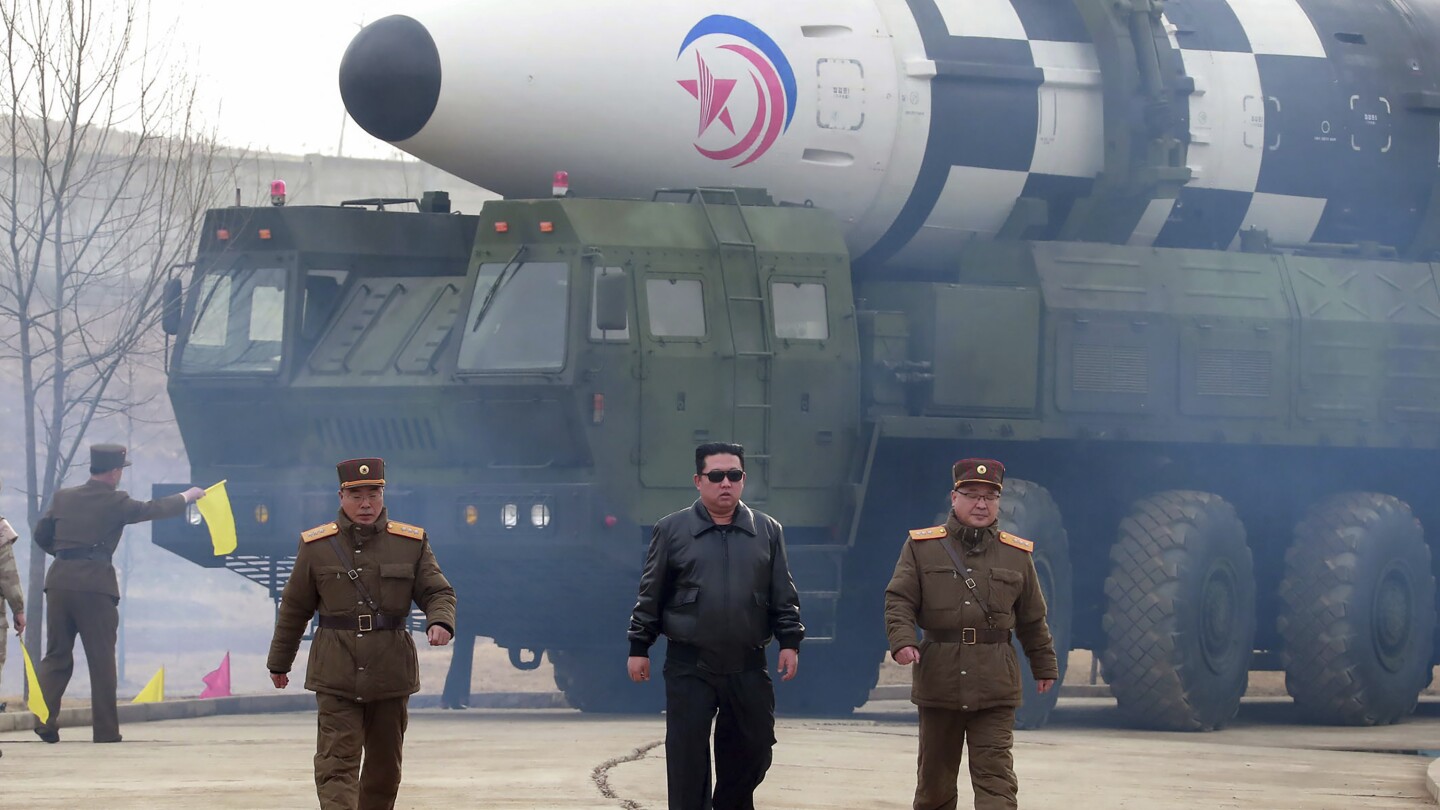
WASHINGTON (AP) — Chinese middlemen launder the proceeds of North Korean hackers’ cyber heists while Chinese ships deliver sanctioned North Korean goods to Chinese ports.
Chinese companies help North Koreans workers — from cheap laborers to well-paid IT specialists — find work abroad. A Beijing art gallery even boasts of North Korean artists working 12-hour days in its heavily surveilled compound, churning out paintings of idyllic visions of life under communism that each sell for thousands of dollars.
That’s all part of what international authorities say is a growing mountain of evidence that shows Beijing is helping cash-strapped North Korea evade a broad range of international sanctions designed to hamper Pyongyang’s nuclear weapons program, according to an Associated Press review of United Nations reports, court records and interviews with experts.
“It’s overwhelming,” Aaron Arnold, a former member of a U.N. panel on North Korea and a sanctions expert at the Royal United Services Institute, said of the links between China and sanctions evasion. “At this point, it’s very hard to say it’s not intentional.”
China has had a complicated relationship with Pyongyang since the 1950-53 Korean War. Though uneasy with a nuclear menace at its doorstep, China doesn’t want its neighbor’s government to collapse, experts say. China views North Korea as a buffer against the U.S., which maintains a significant troop presence in South Korea.
Beijing has long maintained it enforces the sanctions it has supported since North Korea started testing nuclear weapons and forcefully pushed back on any suggestions to the contrary. “China has been fully and strictly implementing the (U.N. Security Council) resolutions,” a Chinese ambassador said in a recent letter to the U.N, adding that his country had “sustained great losses” in doing so.
But in recent years, Beijing has sought to weaken those very sanctions and last year vetoed new restrictions on Pyongyang after it conducted a nuclear test.
This summer a top ruling Chinese party official provided a vivid example of China’s ambiguity on sanctions as he stood clapping next to North Korean Leader Kim Jong Un during a Pyongyang military parade. Rolling past the two men were trucks carrying nuclear-capable missiles and other weapons the regime isn’t supposed to have.
They were joined by Russia’s defense minister, apparently part of a new effort by the Kremlin, struggling in its invasion of Ukraine, to strength ties with North Korea. The U.S. has accused North Korea of supplying artillery shells and rockets to Russia, while new evidence shows Hamas fighters likely fired North Korean weapons during their Oct. 7 assault on Israel.
But while Russia and a handful of other countries have been accused of helping North Korea evade sanctions, none has been as prolific as China, according to court records and international reports.
“China violates North Korea sanctions it voted for and says won’t work because it’s afraid they’ll work. And, also, says it isn’t violating them” said Joshua Stanton, a human rights advocate and attorney who has helped write U.S. sanction laws against North Korea.
A review by the AP found a majority of the people placed on the U.S. government’s sanctions list related to North Korea in recent years have ties to China. Many are North Koreans working for alleged Chinese front companies while others are Chinese citizens who U.S. authorities say launder money or procure weapons material for North Korea.
Besides sanctions, U.S. criminal prosecutions against individuals or entities assisting North Korea’s regime often have links to China.
That’s especially true for cases related to North Korea’s sophisticated hackers, who experts believe have stolen upwards of $3 billion in digital currency in recent years. That windfall has coincided with the speedy growth of the country’s missile and weapons program.
An indictment filed earlier this year alleges that a Chinese middleman helped launder cryptocurrency stolen by the regime’s top hackers into U.S. dollars. And a similar case was filed in 2020 that accused two Chinese brokers of laundering more than $100 million in digital currencies stolen by North Korea.
Such “over-the-counter” brokers allow North Korean hackers to bypass know-your-customer rules governing banks and other financial exchanges.
North Korea depends heavily on China’s financial system and Chinese companies to obtain prohibited technology and goods, as well as to acquire U.S. dollars and gain access to the global financial system, records show.
“The (Chinese) banks are less rigorous because the Chinese government is not pushing them,” said former top U.S. Treasury official Anthony Ruggiero.
North Korea imported more than $250,000 worth of aluminum oxide, which can be used in processing nuclear weapons fuel, from a Chinese company in 2015, according to customs records cited in a think tank report. U.S. prosecutors have alleged the same company accounted for a significant share of overall trade between North Korea and China; its customers included the Chinese government’s Ministry of Commerce, which was bidding on North Korean projects.
Images from North Korean military parades have shown the regime’s nuclear missiles being transported on launchers made with Chinese heavy-duty truck chassis. China told the U.N. panel of experts that North Korea had promised it would use the trucks to move timber.
China regularly ignores reams of satellite photos and vessel tracking data compiled by a U.N. panel of experts showing Chinese-flagged vessels docking with North Korean ships and transferring goods. North Korean ships are banned by U.N. sanctions from participating in ship-to-ship transfers, which are often done to obscure the flow of sanctioned goods like coal exports and oil imports.
The U.S. and other leading democracies sent China a letter this summer saying they were “disappointed” that satellite photos continue to show cargo ships that have allegedly been documented breaking sanctions operating in Chinese ports and territorial waters.
“The international community is closely watching China’s commitment to upholding its UN obligations,” the letter warns.
China dismisses such findings, frequently saying that its own investigations uncovered no evidence of wrongdoing, without providing any alternative information or explanation.
Beijing said last year it couldn’t provide Chinese port of call records for several North Korean ships because the U.N. panel hadn’t provided the ships’ IMO number, a unique identifier painted on large vessels. Those numbers can easily be looked up using a ship’s name.
Eric Penton-Voak, the former coordinator of the U.N. panel of experts, said such excuses were ludicrous in light of China’s vast surveillance powers and showed the ruling communist party’s contempt for enforcing the sanctions it agreed to.
“It’s just grasping at any straw“ to avoid providing an answer, he said.
When the U.N. panel urged Beijing to investigate Chinese garment companies that were likely employing North Korean workers, China said there was nothing it could do because the tip was too vague. The U.N. panel, Beijing said, had only provided the company names in Korean and English. China told the U.N. panel in a letter that its “business registration system uses only the Chinese language.”
___
Associated Press writer Dake Kang in Beijing contributed.
___
The Associated Press receives support for nuclear security coverage from the Carnegie Corporation of New York and Outrider Foundation. The AP is solely responsible for all content.
Contact AP’s global investigative team at Investigative@ap.org

World
Extreme Makeover: Home Edition, Now Hosted by Home Edit Duo, Ordered to Series at ABC

ad
World
From Marseille to Mont-Blanc: What to know about the journey of the Olympic torch to Paris
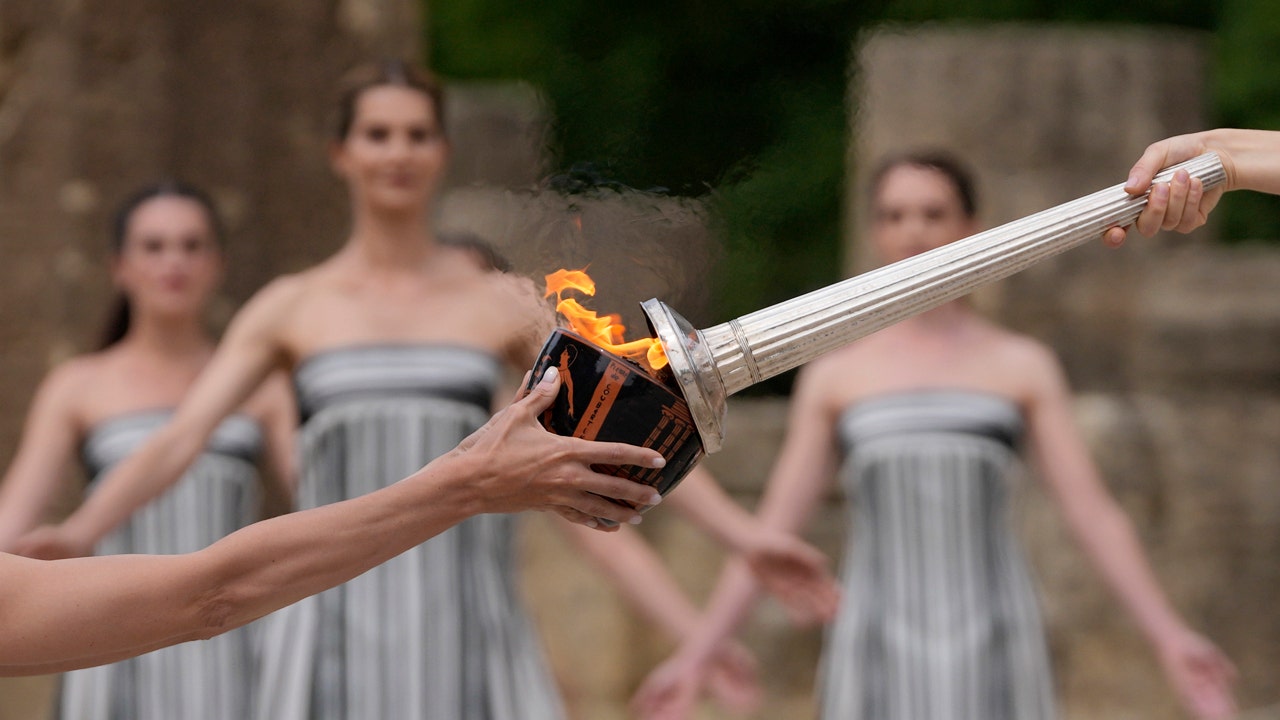
The Olympic torch will finally enter France when it reaches the southern seaport of Marseille on Wednesday. And it’s already been quite a journey.
After being lit on April 16 in Ancient Olympia, the torch was carried around Greece before leaving Athens aboard a three-mast ship named Belem, headed for Marseille.
OLYMPIC TORCH-LIGHTING CEREMONY EXPLAINED: WHAT TO KNOW AHEAD OF THE PARIS GAMES
The Belem was first used in 1896, the same year the modern Olympics came back. It will be accompanied by more than 1,000 boats as it parades around the Bay of Marseille, before arriving at the Vieux-Port, or Old Port, and docking on a pontoon resembling an athletics tracks.
Torch bearers will carry the flame across Marseille the next day, the last stretch running on the roof of the famed Stade Vélodrome, home to Marseille’s passionate soccer fans.
After leaving Marseille, a vast relay route will be undertaken before the torch’s odyssey ends with the opening ceremony of the Games on July 26 in Paris.
Here’s a look at where the torch goes before reaching Paris:
MONT-SAINT-MICHEL
The torch is due to reach the famed and visually stunning site of Mont Saint-Michel in Normandy on May 31.
Located in an area of raised land surrounded by water, the island fortress looks like it was created for a Game of Thrones film set. But it’s real, and very old.
Actress Mary Mina, playing high priestess, right, lights a torch during the official ceremony of the flame lighting for the Paris Olympics, at the Ancient Olympia site, Greece, April 16, 2024. The Olympic torch finally enters France when it reaches the southern seaport of Marseille on Wednesday, May 8, 2024, on an armada from Greece. After leaving Marseille, a vast relay route will be undertaken before the torch’s odyssey ends on July 27 in Paris. (AP Photo/Thanassis Stavrakis)
So old that it already existed during the Hundred Years’ War between England and France, from 1337 to 1453. An English attack was even fended off. Later it became a prison, and in 1979 it was named a UNESCO World Heritage Site.
Every years swarms of tourists are in awe of its raw and haunting beauty.
ACROSS THE OCEANS
The torch travel route is even more unique considering it takes a detour through France’s overseas territories called the Relais des Océans, or Ocean Relay. Riding the waves of the Atlantic, Pacific and Indian Ocean, it will be in French Guiana on June 9 before hitting New Caledonia on June 11.
Next is the island of Réunion at Saint-Denis — coincidentally the same name as the Paris suburb with the Olympic village — before reaching Papeete in the surfing realm of Tahiti, then Baie-Mahault in Gaudeloupe and finally Fort-de-France in Martinique.
The torch comes back to France on June 18 in the southern city of Nice.
FROM SEA BREEZE TO HEAVY CHEESE
Just five days after landing on French shores, the torch heads up the Alpine mountain pass of Chamonix-Mont-Blanc for Olympic Day on June 23.
The Haute-Savoie region is known for its outstanding Chamonix ski resort, which hosts World Cup races, for sweeping views across glacier fields to nearby Italy, and — some would say more importantly — as a producer of fine cheese.
A Cheese Olympics, should it be invented, would feature a sturdy crew of eight competitors from Savoie: Abondance, Beaufort, Chevrotin, Emmental, Reblochon, Tome, Tomme and the heavy-duty Raclette.
HEADING FOR PARIS
After leaving fromage-friendly Savoie, torch bearers will digest in the Doubs region of eastern France, and then visit the Alsace city of Strasbourg in the northeast.
Three days later the torch will reach Verdun, the site of one of the most horrific battles of World War I. From February to December 1916, more than 700,000 French and German soldiers were killed or wounded at the Battle of Verdun.
BASTILLE DAY ARRIVAL
The torch is to arrive on the streets of Paris on July 14 — hardly surprising, considering it’s Bastille Day, France’s national day.
The torch will stay the following day in Paris, then exit again before snaking back to the French capital via Versailles — home to the resplendent Royal Palace — and the suburbs of Nanterre on July 24 and Seine Saint-Denis on July 25.
From there, it’s to travel a very short distance back to Paris on July 26 for the grandiose opening ceremony where athletes will parade on more than 80 boats at sunset on the Seine River.
FINAL DESTINATION?
After the nearly four-hour ceremony ends shortly after 11 p.m., the cauldron will be lit at a location that is being kept top-secret until the day itself. Among reported options are such iconic spots as the Eiffel Tower and the Tuileries Gardens outside the Louvre Museum.
FLAME PROTECTION
A total of 10,000 people will carry the torch along its route. Local police forces on each section of the relay will help to ensure security is high, providing a security bubble around the torch and its carrier.
ECO-FRIENDLY
The torches have a lower environmental impact than those used at previous Games. They burn biogas instead of propane and are recharged when fuel runs out.
Around 2,000 torches will be used compared to more than 10,000 before, according to Georgina Grenon, the director of environmental excellence at Paris 2024. The torches are made with recycled steel and not new aluminum.
World
How serious is the threat to democracy from the far-right?

According to Euronews’s latest Superpoll in April, Germany’s far-right party AfD are polling in second place for the European elections next month. Is the current government doing enough to counteract the threat from the far-right?
Political violence is on the rise in Germany, and news that politicians from the Green party and Social Democrats (SPD) were attacked whilst putting up voting posters on Friday in Dresden has shocked the nation.
Many, including the leaders of the SPD in Saxony, Kathrin Michel and Henning Homann, blamed the far-right Alternative for Germany (AfD) party. AfD denied strongly that it was behind these attacks and said election campaigns should be without violence.
Earlier this year, hundreds of thousands gathered across major cities in Germany to protests against the far-right. Many experts fear that AfD would change the constitution, school curriculum and introduce new laws, at the very minimum.
Those who say they’ll vote for AfD often want a change in politics and complain that all the other established parties including the Christian Democratic Union (CDU) and SPD are the same.
Social democrats from Germany and Europe held a democracy congress in Berlin on Saturday, where they promised not to cooperate with far-right parties, in the likely event that coalitions may need to be formed.
But is the current government doing enough to counteract the threat from the far-right?
Independent non-government organisation Amadeu Antonio Foundation spokesperson Lorenz Blumenthal told Euronews that the government is trying.
“At least they are now acknowledging what threat the far-right poses to democracy and the people living in Germany. But of course, a lot of mistakes were made in the past by not fully acting up on right wing extremism especially concerning the juridical branch. A lot of crimes remained unpunished. And that, of course, leads to a new self-consciousness of the far right, because if people are not punished for their crimes, they can repeat them and they feel in a way empowered.”
Blumenthal also suggests there is problem with image and recommends that politicians take more active steps to be more honest with voters, and admit that mistakes may have been made, “for instance, the corona pandemic, which might have seen a little too much of political restrictions.”
He also says that it would help politicians be taken more seriously by voters if they acknowledge that times are hard in global crises but also celebrate national victories. Many mainstream parties are afraid of being labelled as nationalist, so stray from being proud of achievements.
“But especially for Germany, we haven’t been doing all too bad. Germany even came out of the pandemic surprisingly well. We achieved so much as a country in terms of doing a very credible transformation towards more green energy, towards jobs,” Blumenthal acknowledges, highlighting that the recession didn’t hit Germany as hard as the AfD is portraying: The shift that really needs to happen is also to be proud of these things.”
“If we break it down,” Blumenthal adds, “the AfD is fear mongering in the best sense. They portray this apocalyptic scenario that migration will ruin Germany, that the support for Ukraine and for Israel will ruin Germany. It’s always just basically picking up votes by fearmongering.”
This tactic can be seen across populist parties in Europe: “If we go back to point X, Y, Z in time, which, for the AfD, is like the 50s, then everything will be fine. And it’s just this very nostalgic backward vision for, for Germany that I, at least, don’t want to live in,” Blumenthal says.
-

 World1 week ago
World1 week agoRussian forces gained partial control of Donetsk's Ocheretyne town
-
Movie Reviews1 week ago
Challengers Movie Review
-

 Politics1 week ago
Politics1 week agoHouse Republicans brace for spring legislative sprint with one less GOP vote
-

 World1 week ago
World1 week agoAt least four dead in US after dozens of tornadoes rip through Oklahoma
-
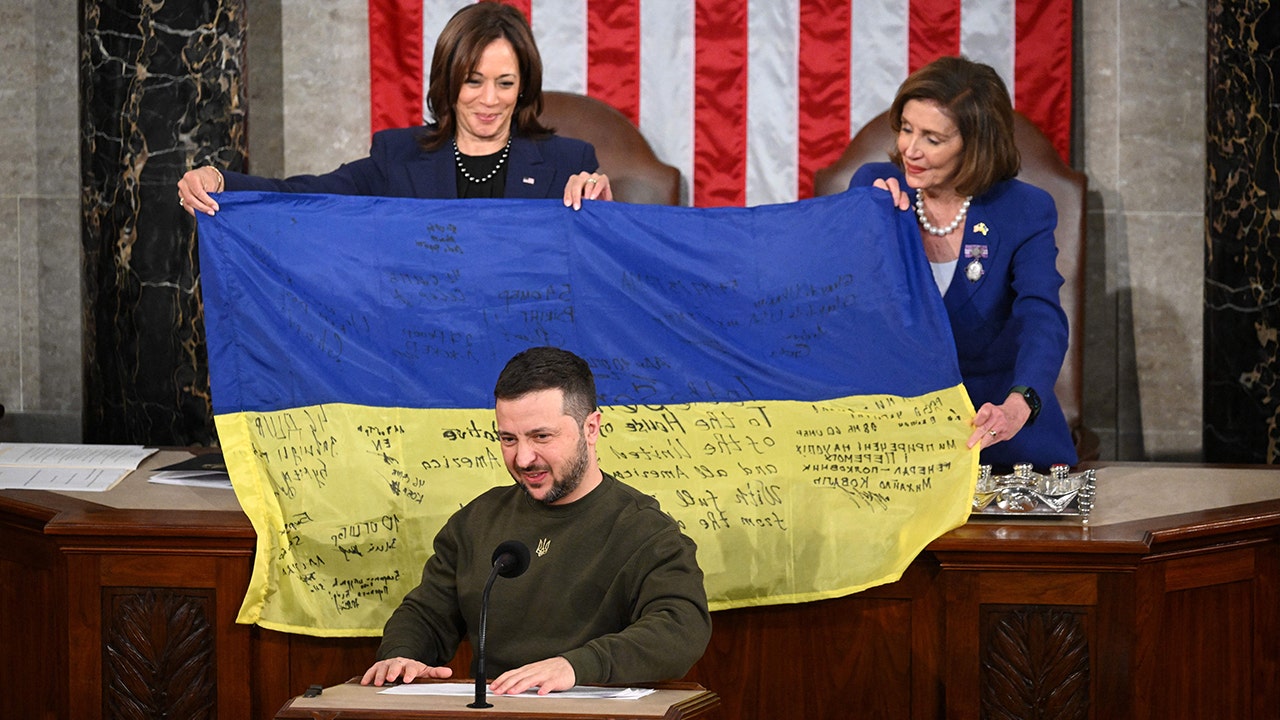
 Politics1 week ago
Politics1 week agoWashington chooses its wars; Ukraine and Israel have made the cut despite opposition on right and left
-

 Politics1 week ago
Politics1 week agoDems disagree on whether party has antisemitism problem
-

 Politics1 week ago
Politics1 week agoAnti-Trump DA's no-show at debate leaves challenger facing off against empty podium
-

 Politics1 week ago
Politics1 week agoStefanik hits special counsel Jack Smith with ethics complaint, accuses him of election meddling


